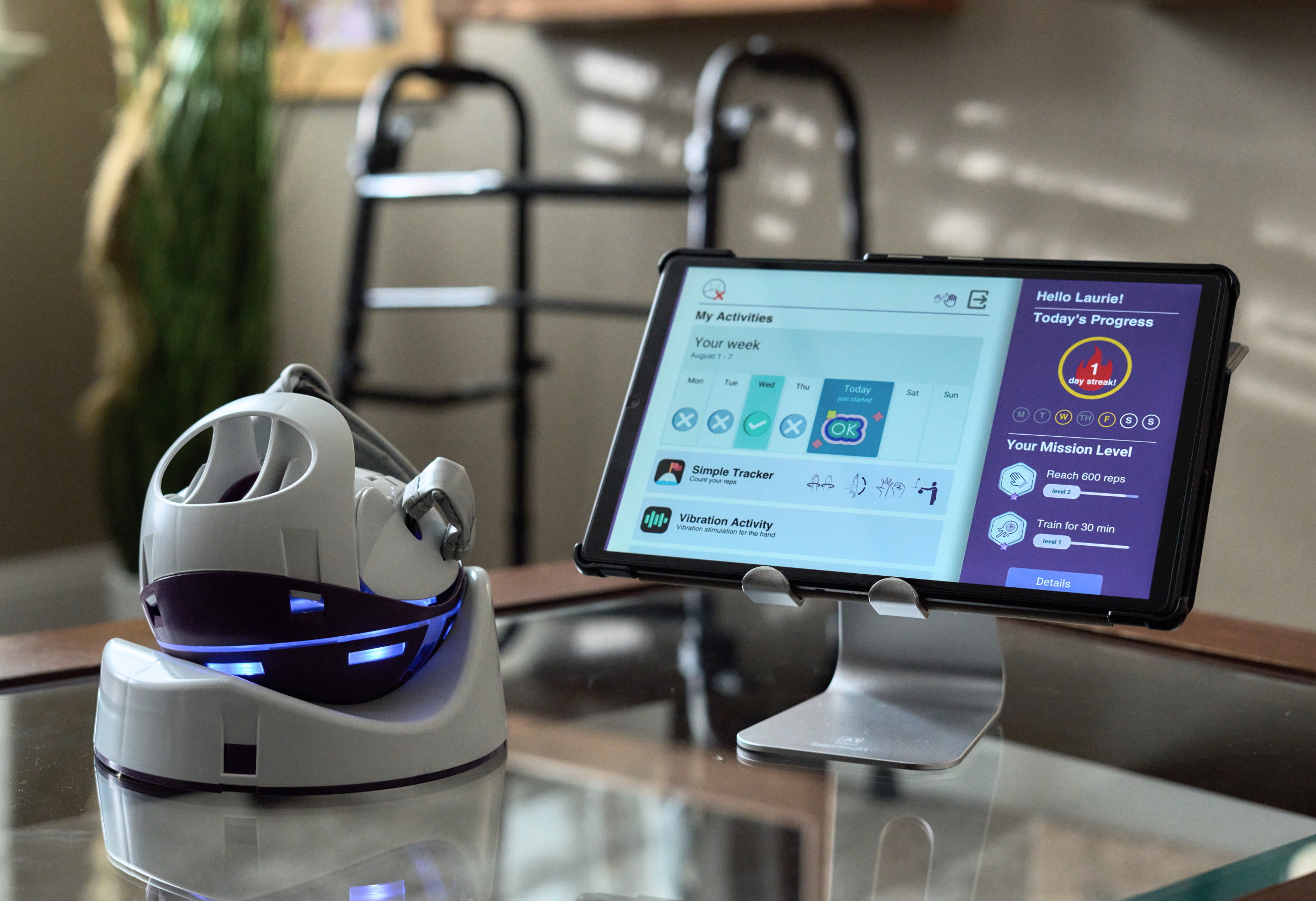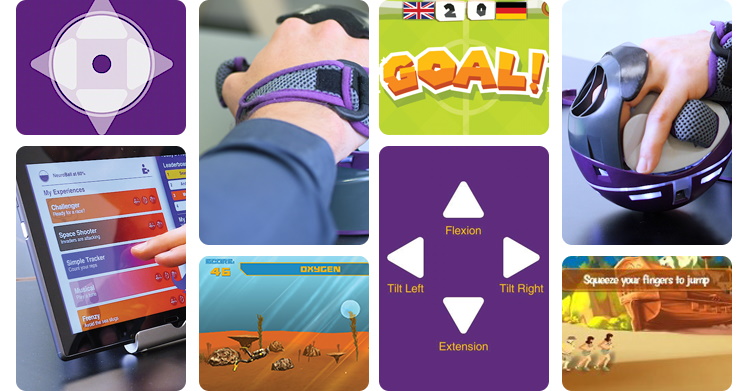Millions around the world suffer strokes every year, and millions more are in recovery from one they’ve suffered. Regaining the use of affected limbs and capabilities is a long road, but one that can be shortened by intensive rehabilitation efforts — which Neurofenix has shown can take place in the home rather than during frequent trips to the hospital. Its Neuroball device and home therapy platform have led to $7 million in new funding to expand and deepen its platform.
The problem with existing stroke rehabilitation techniques is not that they aren’t effective, but that they’re mostly located in hospitals and thus limit how often they can be engaged with.
“For many, many years rehabilitation, especially neural rehabilitation, has been focused on big bulky equipment in facilities,” explained Guillem Singla, CEO and co-founder (with CTO Dimitrios Athanasiou) of Neurofenix. “We’ve extracted the essence of what needs to be done in neural rehabilitation: It has to be intensive, engaging, motivating and get people to follow up for not just weeks but months and years.”
There are some home rehab devices out there, often in the form of gloves or free motion tracking, both of which work to an extent but haven’t caught on.
“Before even starting to develop the first products, we talked with hundreds of patients, hundreds of therapists, tested everything out — I personally, when a family member had a stroke, had to try many things,” Singla said. “The first urgent need that was being completely neglected was upper limb rehabilitation: 80% of patients suffer from arm and hand impairment after a stroke.”
The company’s solution (“after about 50 iterations,” he added) is the Neuroball, a device that the user can grip and strap into easily and which tracks every movement of the upper limbs from shoulder down to fingertips. It doesn’t do anything radically different from in-hospital setups but rather allows patients to perform the rehabilitative exercises and movements far more frequently, and in a way that reflects their particular needs and capabilities.

It includes a motion and orientation sensor for wrist, elbow and shoulder movements, and individual sensors for each finger. The ball rests in a cradle but can be picked up and moved freely.
“The key is neuroplasticity,” said Singla. “The evidence shows that the more repetitions a patient does, shows recovery to a greater degree. In a typical session a patient does between 30 and 40 movements with a therapist, and in our clinical trials we showed that patients did more than 600 per day.”
Ease of use, gamification and a bit of algorithmic adjustment are what the company claims result in this huge increase in exercise — and, according to studies they’ve conducted, better outcomes, including improved range of movement and reduced pain.

It’s easier to put on than a resistive glove, doesn’t take up a lot of space, runs its software on a small, dedicated tablet and has a handful of different games available for each movement the patient needs to perform. These are simple but motivational things, like an endless racer where you squeeze to jump or a Space Invaders game where you rotate your wrist to move your ship. It might not be Fortnite, but it’s better than just seeing a number go up. There are even leaderboards in case a user feels like comparing their progress with a fellow patient.
The promise of improved home rehabilitation is one that will almost certainly appeal to a lot of people for whom going to the hospital or physical therapy office three or four times a week is impractical. Such a schedule would be trying for anyone, let alone a person who might have mobility, speech or upper limb limitations.
Doing the exercises at home and on one’s own time, with the software adjusting to patients’ own rhythms and preferences (such as being more flexible in the morning or evening) leads naturally to far more rehabilitative work being done without extra clinical resources. (“In fact, last week a patient reached 300 days in a row on our platform,” noted Singla.)
The main barrier is affordability: The device is too new to be covered by insurance, though it does qualify for HSA and FSA spending. So far the company, based in the U.K. (and Atlanta in the U.S.), has conducted a handful of tests showing the Neuroball’s efficacy but not the type needed in order to be covered as a prescribed medical device. But that’s next on the agenda now that they have a new $7 million round in the bank.
“The reason we raised this Series A was we had clear goals in mind,” Singla said, primarily establishing its commercial and clinical presence in the U.S. and then expanding to adjacent forms of therapy.
“Our goal is to be the leader of neural rehabilitation at home, not only for stroke but for trauma,” he continued. “We literally have 400 ideas in our backlog of improvements we can make: expansions, cognitive training, speech and language … if you think about the needs of a neurological patient, they are extremely varied. There’s so many other therapies we can look at.”
The $7 million A round was led by AlbionVC, with participation by HTH, InHealth Ventures and existing investors. The device is not broadly available yet, but curious clinicians and prospective patients are encouraged to get in contact for potential collaboration.































Comment